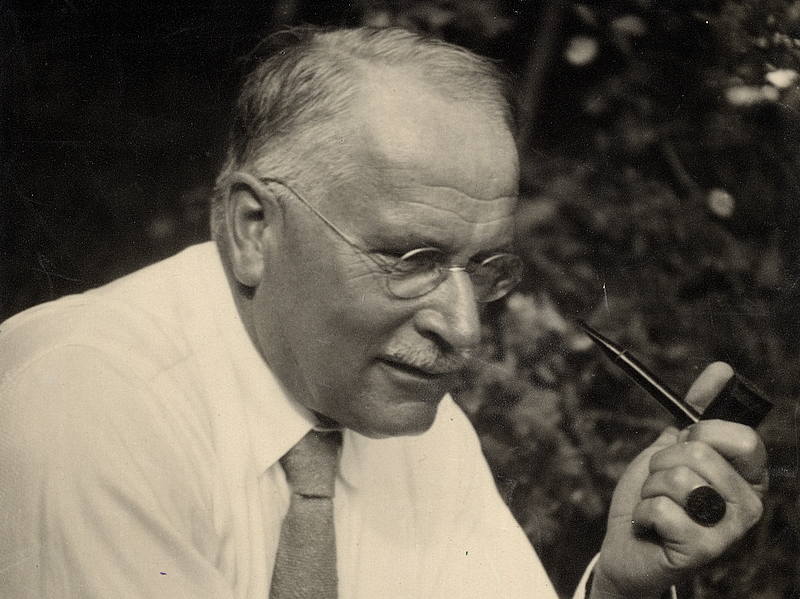Exploring Carl Jung's Perspective on Death and Its Significance
Written on
Chapter 1: The Importance of Life's Stages
Carl Jung, the renowned psychoanalyst, proposed that life comprises three significant phases: childhood, youth (up to around 35-40 years), and the latter part of life, which encompasses middle to old age. He emphasized the importance of the latter phase, stating:
"A human being would certainly not grow to be seventy or eighty years old if this longevity had no meaning for the species to which he belongs. The afternoon of human life must also have a significance of its own and cannot merely be a pitiful appendage to life’s morning."
Jung expressed concern that contemporary society has diminished the value of the latter phase of life. He argued that the principles governing the first half of life differ markedly from those applicable to the second half. He believed that many psychological issues among the elderly stem from an inability to adapt and move forward, often resulting in a fixation on the past.
This condition, Jung posited, is not merely an individual failing but reflects a societal undervaluation of older adults:
"In primitive tribes, we observe that the old people are almost always the guardians of the mysteries and the laws, and it is in these that the cultural heritage of the tribe is expressed. How does the matter stand with us? Where is the wisdom of our old people — where are their precious secrets and visions? For the most part, the old try to compete with the young."
To illustrate the persistence of this issue, one can observe our youth-centric culture, where older figures, like Madonna, undergo surgeries to appear younger. The obsession with "longevity" is evident in individuals like Bryan Johnson, who claims to defy aging through diet and fitness. Our society increasingly views aging as undesirable, leading to a focus on competing with youth rather than embracing the wisdom that comes with age.
Section 1.1: The Psychological Perspective on Death
Jung connected this cultural attitude towards aging to how we perceive death. He argued that, psychologically, it is essential to regard death as a destination rather than something to be feared. While this does not necessarily require a belief in an afterlife, Jung suggested that such a belief is not escapism; rather, it can provide a meaningful context for life’s conclusion, akin to how youth is driven by aspirations for the future:
"It is particularly fatal for such people to look backward. For them a prospect and a goal in the future are indispensable."
This is why many religions promise an existence beyond this life, enabling individuals to approach the latter half of life with determination and purpose, similar to how they engage with the earlier stages.
In this video, Carl Jung discusses how viewing death as a destination rather than an end fosters a healthier psychological state.
Jung noted that while empirical science might not provide proof of an afterlife, his observations suggest that believing in life beyond death is psychologically beneficial. He expressed that a life directed towards a goal is typically richer and healthier than one that lacks purpose:
"I have observed that a directed life is in general better, richer and healthier than an aimless one, and it is better to go forwards with the stream of time than backwards against it."
He likened the belief in an afterlife to the instinctual need for nutrition, asserting that just as people may not understand why salt is essential, they nonetheless crave it. Similarly, humanity has an intrinsic need for the symbolic aspects of life, including the concept of life after death.
Subsection 1.1.1: The Symbolic Nature of the Psyche

Jung's foundational work centered on the symbolic nature of the psyche, emphasizing that true understanding transcends mere logical thinking:
"Do we ever understand what we think? We only understand that thinking which is a mere equation... But beyond that, there is a thinking in primordial images — in symbols which are older than historical man."
He argued that a fulfilling life is only achievable when individuals align with these symbols, which form the bedrock of human experience. The idea of life after death is one of these primordial thoughts, essential for psychological well-being.
Chapter 2: The Cultural Conflict with Death
Jung's insights starkly contrast with contemporary cultural views that dismiss death as a meaningless end. His observations serve as a reminder that this perspective is incompatible with leading a fulfilling life.
In this video, Carl Jung shares his views on the afterlife and its relevance to psychological well-being.